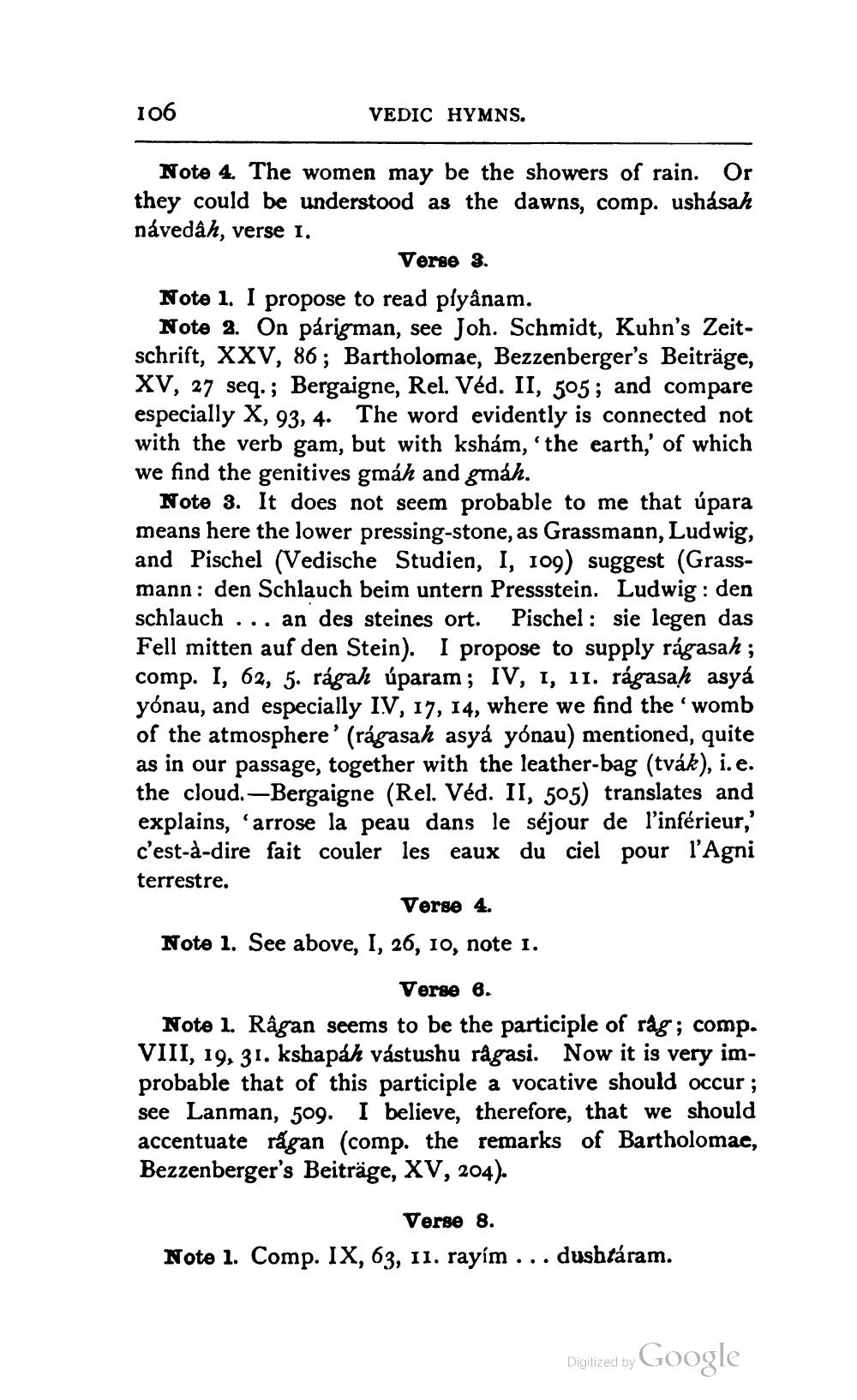________________
106
VEDIC HYMNS.
Note 4. The women may be the showers of rain. Or they could be understood as the dawns, comp. ushásah návedâh, verse 1.
Verse 3.
Note 1. I propose to read píyânam.
Note 2. On párigman, see Joh. Schmidt, Kuhn's Zeitschrift, XXV, 86; Bartholomae, Bezzenberger's Beiträge, XV, 27 seq.; Bergaigne, Rel. Véd. II, 505; and compare especially X, 93, 4. The word evidently is connected not with the verb gam, but with kshám, 'the earth,' of which we find the genitives gmáh and gmák.
Note 3. It does not seem probable to me that úpara means here the lower pressing-stone, as Grassmann, Ludwig, and Pischel (Vedische Studien, I, 109) suggest (Grassmann den Schlauch beim untern Pressstein. Ludwig: den schlauch ... an des steines ort. Pischel sie legen das Fell mitten auf den Stein). I propose to supply rágasah; comp. I, 62, 5. rágal úparam; IV, 1, 11. rágasaḥ asyá yónau, and especially IV, 17, 14, where we find the 'womb of the atmosphere' (rágasah asyá yónau) mentioned, quite as in our passage, together with the leather-bag (tvák), i. e. the cloud. -Bergaigne (Rel. Véd. II, 505) translates and explains, 'arrose la peau dans le séjour de l'inférieur,' c'est-à-dire fait couler les eaux du ciel pour l'Agni
terrestre.
Verse 4.
Note 1. See above, I, 26, 10, note 1.
Verse 6.
Note 1. Râgan seems to be the participle of råg; comp. VIII, 19, 31. kshapák vástushu râgasi. Now it is very improbable that of this participle a vocative should occur; see Lanman, 509. I believe, therefore, that we should accentuate ragan (comp. the remarks of Bartholomae, Bezzenberger's Beiträge, XV, 204).
Verse 8.
Note 1. Comp. IX, 63, 11. rayím... dushtáram.
Digitized by
Google




